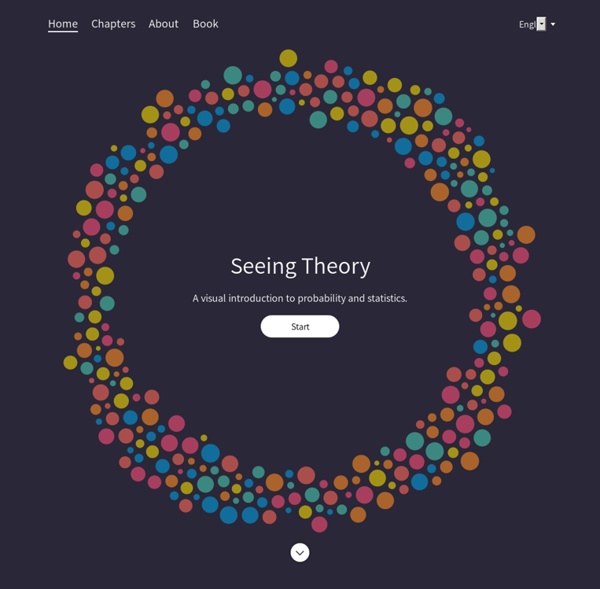Proko
Full Access to Figure Drawing Videos - miss new tutorials, signup for my mailing list - Let's get into shading a drawing! We'll explore form, planes and light on form. I'll guide you through making an object feeling 3 dimensional by indicating the elements of light on form - highlight, center light, halftones, core shadow, reflected light, cast shadow and occlusion shadow. How the local value of the object effects the tones. And how does intensity of light affect tones.
The Mathematics of Machine Learning
In the last few months, I have had several people contact me about their enthusiasm for venturing into the world of data science and using Machine Learning (ML) techniques to probe statistical regularities and build impeccable data-driven products. However, I have observed that some actually lack the necessary mathematical intuition and framework to get useful results. This is the main reason I decided to write this blog post. Recently, there has been an upsurge in the availability of many easy-to-use machine and deep learning packages such as scikit-learn, Weka, Tensorflow, R-caret etc.
Unanswered emails were the bane of my life - until I spent a month in search of inbox nirvana
At 5.10pm on New Year’s Day, I had 16,516 unread emails in my inbox. At 5.11pm on New Year’s Day, my inbox was empty. As chaos vanished to nothingness, a euphoric feeling of purity washed over me. Bright sunshine burst through the windows turning my living room gold and, from nowhere, a heavenly choir sang.
A036057
M. F. Hasler, Table of n, a(n) for n = 1..844 (data from E.
Learn to Play Chess
Chess Corner Home Learn Play Games Fun World Champions Ecards Book Store Links Learn to Play Chess
Unlearning descriptive statistics
If you've ever used an arithmetic mean, a Pearson correlation or a standard deviation to describe a dataset, I'm writing this for you. Better numbers exist to summarize location, association and spread: numbers that are easier to interpret and that don't act up with wonky data and outliers. Statistics professors tend to gloss over basic descriptive statistics because they want to spend as much time as possible on margins of error and t-tests and regression. Fair enough, but the result is that it's easier to find a machine learning expert than someone who can talk about numbers. Forget what you think you know about descriptives and let me give you a whirlwind tour of the real stuff.
Nick Richardson reviews ‘The Three-Body Problem’ by Cixin Liu, translated by Ken Liu, ‘The Dark Forest’ by Cixin Liu, translated by Joel Martinsen, ‘Death’s End’ by Cixin Liu, translated by Ken Liu, ‘The Wandering Earth’ by Cixin Liu, translated by Ken Li
Science fiction isn’t new to China, as Cixin Liu explains in Invisible Planets, an introduction to Chinese sci-fi by some of its most prominent authors, but good science fiction is. The first Chinese sci-fi tales appeared at the turn of the 20th century, written by intellectuals fascinated by Western technology. ‘At its birth,’ Cixin writes, science fiction ‘became a tool of propaganda for the Chinese who dreamed of a strong China free of colonial depredations’. One of the earliest stories was written by the scholar Liang Qichao, a leader of the failed Hundred Days’ Reform of 1898, and imagined a Shanghai World’s Fair, a dream that didn’t become a reality until 2010. Perhaps surprisingly, given the degree of idealistic fervour that followed Mao’s accession, very little utopian science fiction was produced under communism (in the Soviet Union there was plenty, at least initially). Cixin himself has been at the forefront of the scene since the 1990s.
An indie guide to releasing your music
Digital [Overview | Mastering | Distro | Bandcamp | Publishing, Licensing, Copyrights] | Overview With a budget of a few hundred dollars... you can get your digital album professionally Mastered and make it available on all the popular stores and streaming services.



